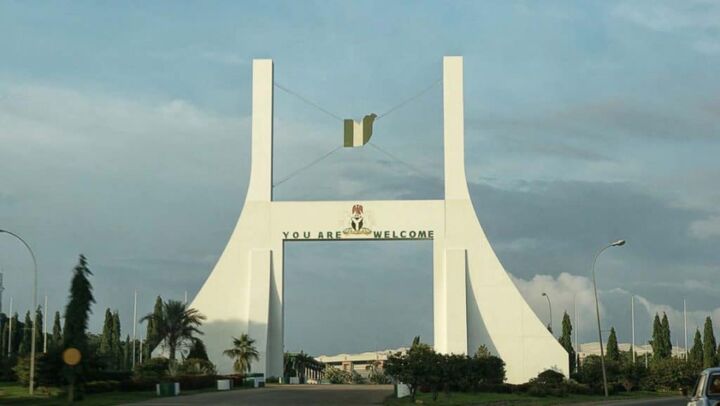Land prices in Nigeria’s capital city, Abuja, have recorded a significant surge, driven by rapid infrastructure development and increased investor interest in the Federal Capital Territory (FCT). Real estate experts and market analysts say the upward trend in property values is being fuelled by ongoing government-led and private-sector projects that are transforming the city’s landscape and expanding its urban boundaries.
In recent months, several key infrastructure projects have gained momentum across Abuja, including new road networks, flyovers, expanded transportation corridors, and utility upgrades. These developments have opened up previously underdeveloped districts, making them more accessible and attractive to both investors and prospective homeowners. Areas such as Gwagwalada, Kuje, Lugbe, and parts of the Abuja–Keffi axis have witnessed notable increases in land values, with prices in some locations rising by as much as 25 to 40 percent in less than a year.

According to estate surveyors, improved connectivity has been a major factor behind the price surge. The ongoing construction of highways and feeder roads has drastically reduced travel times between the city centre and outlying districts, making previously remote areas viable for residential and commercial investment. With Abuja’s population continuing to grow at one of the fastest rates in Nigeria, the demand for housing and commercial space has kept pressure on available land, leading to heightened competition among buyers.
Developers say the city’s evolving skyline is not just a result of government projects but also large-scale private investments. New housing estates, business complexes, and mixed-use developments are springing up across the FCT, creating fresh demand for land. Real estate agents report that plots in emerging districts are being snapped up quickly, often with speculative buyers betting on future price appreciation as infrastructure works near completion.
The government has also played a role in boosting investor confidence. Policies aimed at easing land acquisition processes, coupled with urban renewal initiatives, have made property investment more appealing. For example, the Abuja Master Plan’s continued implementation has ensured that development is strategically coordinated, reducing the risk of unplanned settlements and preserving long-term value for investors.
Market analysts caution, however, that while the current boom presents opportunities, it also raises concerns about affordability. With land values rising rapidly, middle- and low-income earners may find it increasingly difficult to secure plots in desirable locations. This trend, if unchecked, could widen the housing affordability gap and push many buyers further out to the city’s periphery.
In the high-end property market, districts such as Maitama, Asokoro, and Wuse have continued to see steady appreciation, fuelled by demand from government officials, diplomats, and corporate executives. However, much of the recent excitement has centred on fast-growing districts like Lokogoma, Apo, and Jahi, where infrastructure improvements are creating pockets of rapid value growth.
Real estate professionals note that Abuja’s unique status as the nation’s political capital gives it a level of stability not always present in other Nigerian cities. Government institutions, international organisations, and corporate headquarters provide a consistent demand base for office and residential space. Combined with the ongoing infrastructure boom, these factors have created a perfect storm for sustained property value growth.
Some developers are already positioning themselves to take advantage of future trends. Projects incorporating green spaces, smart technology, and sustainable designs are increasingly being marketed as premium offerings, targeting a new class of buyers who value modern amenities alongside location and accessibility. This is in line with global real estate trends, where urban developments are being planned with livability and environmental sustainability in mind.
Investors looking to enter the Abuja market are being advised to act quickly, as continued infrastructure upgrades are expected to push prices even higher in the coming years. The Abuja Mass Transit rail expansion, ongoing airport road upgrades, and the development of satellite towns are all expected to further integrate the city’s districts and spur fresh waves of real estate activity.
For now, the surge in land prices reflects both optimism and opportunity. As Abuja’s transformation accelerates, property investors, developers, and homebuyers alike are seeking to secure their place in a city whose growth trajectory shows no signs of slowing. The challenge for policymakers will be ensuring that this rapid development benefits a broad spectrum of residents, balancing investment potential with affordability and sustainable urban planning.
With the Federal Capital Territory emerging as one of Africa’s fastest-growing urban centres, the link between infrastructure investment and property value appreciation has never been more evident. For those willing to navigate the competitive market, Abuja’s real estate sector is proving to be one of the most lucrative investment landscapes in the country — and the current boom suggests that the best may still be yet to come.
Support InfoStride News' Credible Journalism: Only credible journalism can guarantee a fair, accountable and transparent society, including democracy and government. It involves a lot of efforts and money. We need your support. Click here to Donate
